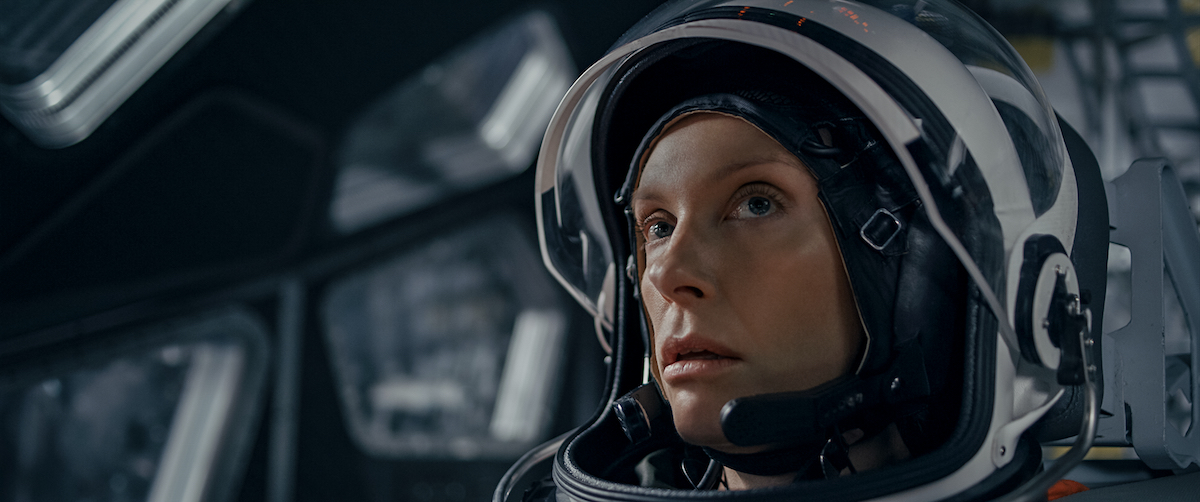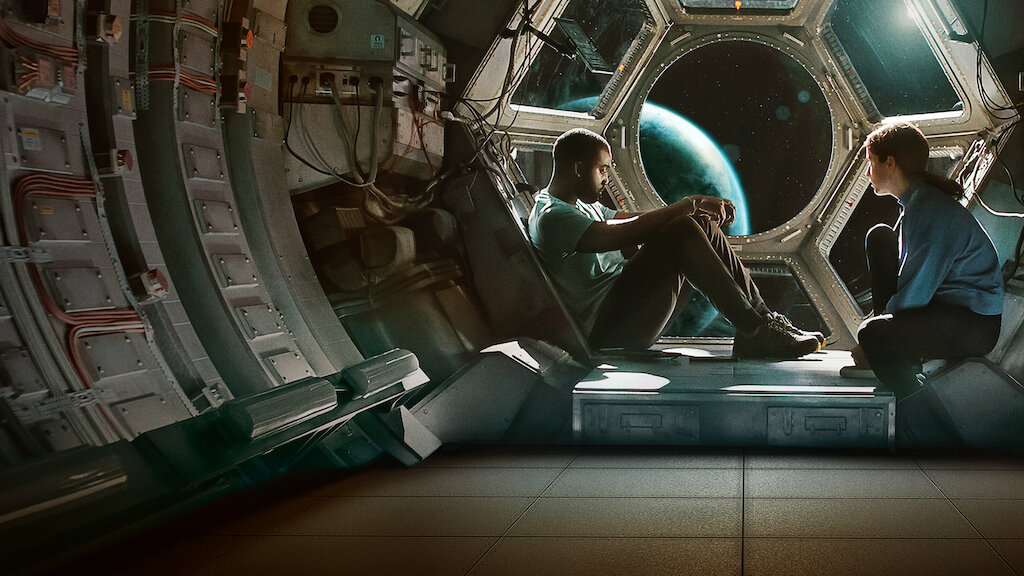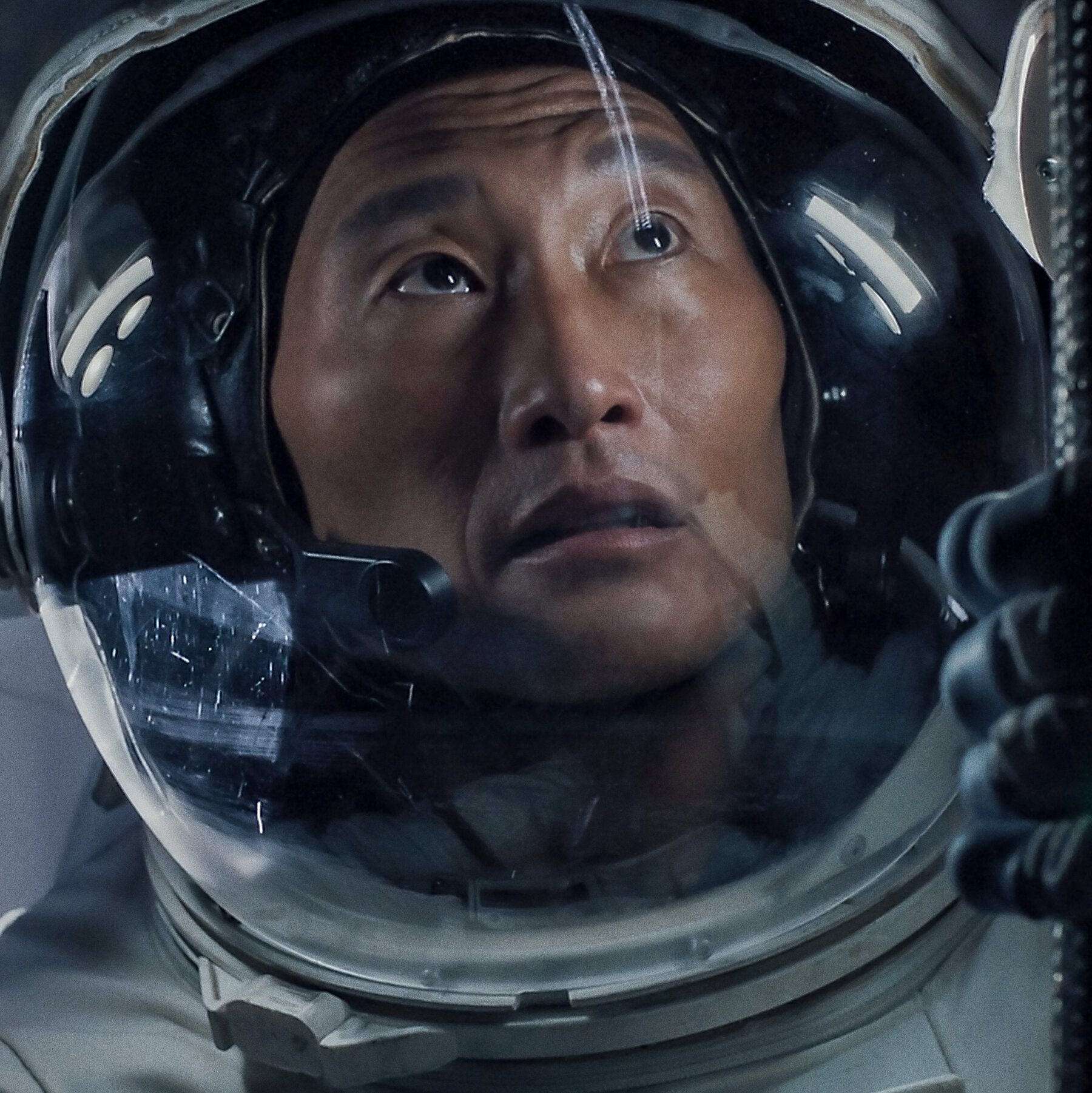


04/05/21
Netflix
There’s a familiar shaggy dog story which concerns four passengers on a stricken airplane, who discover that they have only been issued with three parachutes and must therefore decide which of them is going to have to make do without one. Will a passenger do the decent thing and volunteer? Or will they simply opt to push one of the others out of the door? I wonder if writer/director Joe Penna took his inspiration from that same tale? At any rate, what we have here is a futuristic version of the same conundrum. In space.
Three astronauts embark on what will be a two year mission to Mars. They comprise Captain Marina Barnett (Toni Collette, for once given free rein to employ her native accent), biologist David Kim (Daniel Dae Kim) and wide-eyed medical researcher, Zoe Levinson (Anna Kendrick). The actual details of their mission are somewhat nebulous, but that’s not the main concern of this story, which is far more interested in moral dilemmas.
The plot kicks in when the three crew members discover an injured man lying inside one of the er… hatches. He is engineer Michael Adams (Shamier Anderson) who – in equally nebulous circumstances – has ended up wounded and unconscious onboard. He is quickly patched up by Zoe and, despite being somewhat bewildered to discover he’s not going home for two years, seems a nice enough fellow, determined to fit in with three strangers. But his presence on the spaceship has caused complications, not least of which is the fact that his prone body has somehow damaged a vital bit of equipment and… there will now only be enough oxygen to allow three people to reach Mars safely.
In short, one of them needs to die, fairly promptly. Unless of course, they can come up with a better er… parachute.
Stowaway is an unashamedly low budget affair and, while it manages to make the interior of the ship thoroughly believable, whenever the characters are required to step outside of it, the result looks like a less convincing version of Gravity. This is particularly evident in an extended sequence where David and Zoe undertake a perilous space walk along a constantly rotating structure in order to reach some oxygen tanks. While it manages to exert a degree of genuine suspense in the telling, this idea has been done before and, it must be said, more convincingly than here, most recently in George Clooney’s The Midnight Sky.
It’s nicely acted by Kendrick and Anderson, who make an appealing double act. Dae Kim and Collette have rather less to do and are mostly required to sit around looking glum. Understandable, under the circumstances.
More importantly, perhaps, that central moral dilemma is never satisfyingly explored and the story’s resolution does feel like a bit of a cop out. Still, this isn’t a total dud. It keeps me reasonably entertained throughout and it’s perhaps only afterwards that I start to seriously question some aspects of the plot. I can only say that Hyperion – the company that organised this mission to Mars – needs to take another look at its safety procedures.
And they should definitely start by providing more parachutes.
3.6 stars
Philip Caveney


